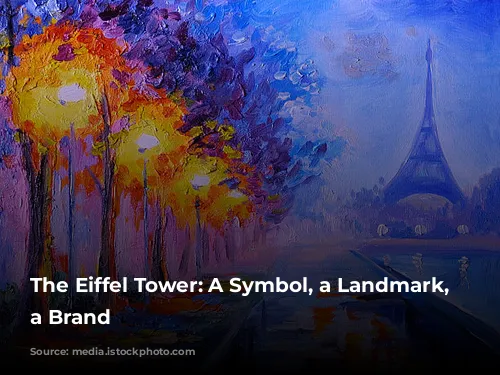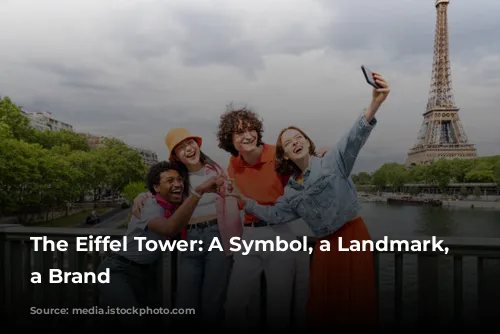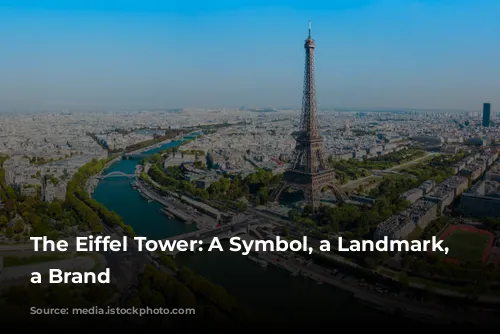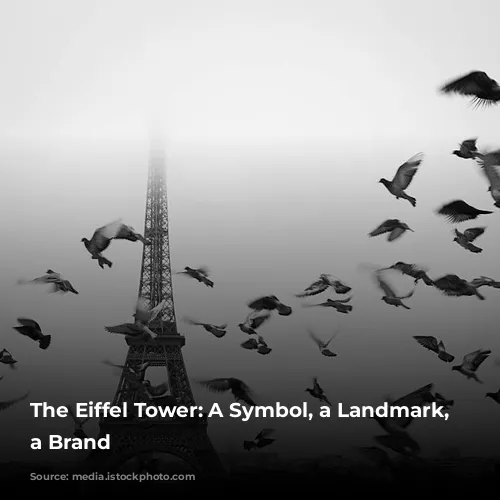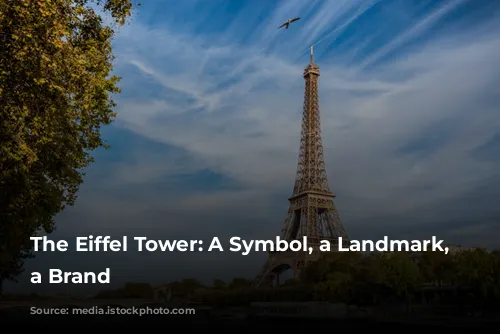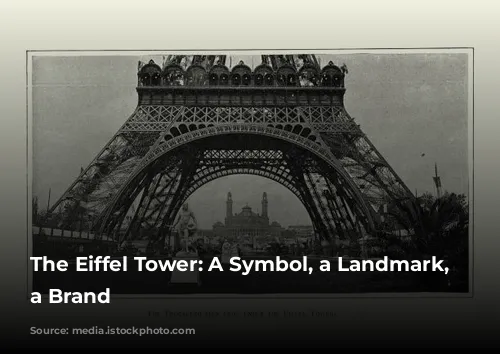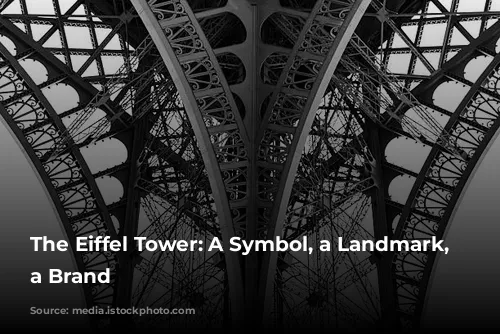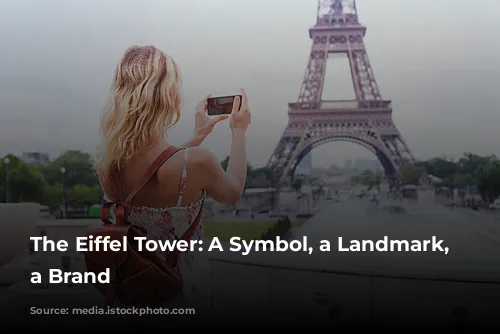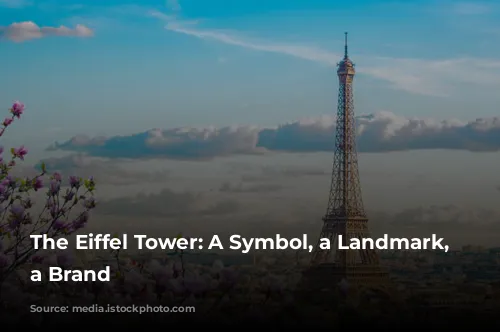The Eiffel Tower, a magnificent structure standing tall in Paris, is much more than just a tourist attraction. It’s a global icon, a symbol of France, and a powerful brand. The mere mention of its name conjures images of romance, history, and architectural brilliance, drawing in artists, filmmakers, and enthusiasts alike.
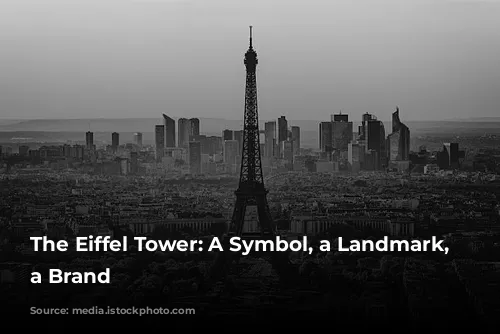
The Eiffel Tower on Film
The Eiffel Tower’s image graces countless films, documentaries, and artistic creations, showcasing its enduring allure. But beyond its artistic significance, the Tower is also a popular tourist destination, accessible to all. Its image is frequently featured on souvenirs, clothing, and other merchandise, further solidifying its status as a cultural icon.
Filming at the Eiffel Tower: Opportunities and Regulations
The Eiffel Tower’s dedicated team is committed to accommodating filming requests, ensuring they align with the monument’s preservation and operations. Filming can take place both during the day and at night, offering a variety of perspectives and capturing the Tower’s unique beauty.
- Daytime Filming: Enjoy the natural light and unobstructed views of the city from the Tower’s various levels, including the forecourt, floors, and areas not open to the public.
- Nighttime Filming: Witness the magic of the Eiffel Tower illuminated in all its glory. However, remember that the Tower’s illuminations are protected by copyright. Special authorization and fees are required for filming at night.
Access and Safety
- Service Lift: For filming crews, a service lift provides access between the ground level and the second floor, offering a convenient way to move equipment and personnel.
- Technical Solutions: The Tower’s team works closely with filmmakers to address technical requirements and ensure safety during filming. This includes managing electrical connections, production control, and access for crews and equipment.
- Parking: Vehicles are allowed to park on Avenue Gustave Eiffel for unloading, but must be moved promptly.
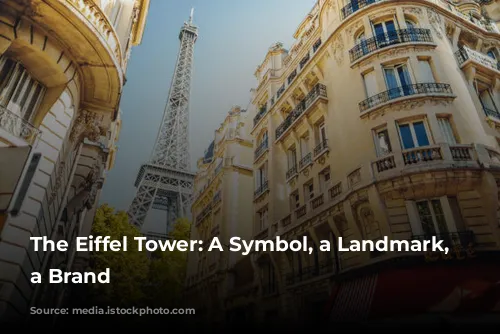
Image Rights and the Eiffel Tower Brand
The Eiffel Tower’s image has different regulations depending on the time of day and intended use.
Daytime Image Use
The image of the Eiffel Tower during the day falls within the public domain, meaning its use is rights-free. Anyone can reproduce the image without seeking prior authorization from the SETE, the managing company of the Eiffel Tower’s image on behalf of the City of Paris.
Nighttime Image Use
The various illuminations of the Eiffel Tower, including the iconic golden illumination and the twinkling lights, are protected by copyright. Using the Eiffel Tower’s image at night requires prior authorization from the SETE and payment of rights. The fees are determined based on factors like the intended use and the media plan.
Private Use vs. Professional Use
- Private Individuals: Individuals taking photos of the Eiffel Tower for private use do not need authorization.
- Professionals: Professionals, however, must contact the SETE to understand the conditions of use for images of the Eiffel Tower.
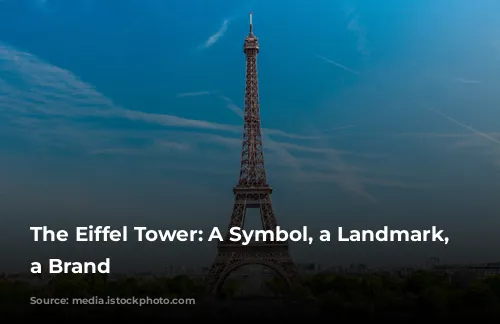
The Eiffel Tower Brand: Protection and Licensing
The phrase “The Eiffel Tower” is a registered trademark, granting it legal protection. Using the Eiffel Tower brand in commercial products requires a licensing agreement negotiated on a case-by-case basis with the SETE. This ensures the brand’s integrity and prevents unauthorized use.
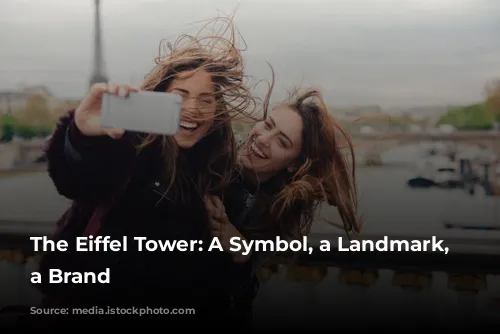
In Conclusion
The Eiffel Tower is a symbol of Paris and a global icon. Its image is both free to use during the day and subject to regulations and fees at night. Filming at the Eiffel Tower offers unique opportunities for capturing its beauty and grandeur, but requires careful planning and adherence to the established guidelines. The Eiffel Tower brand, like the monument itself, holds significant value and requires protection through licensing agreements.
